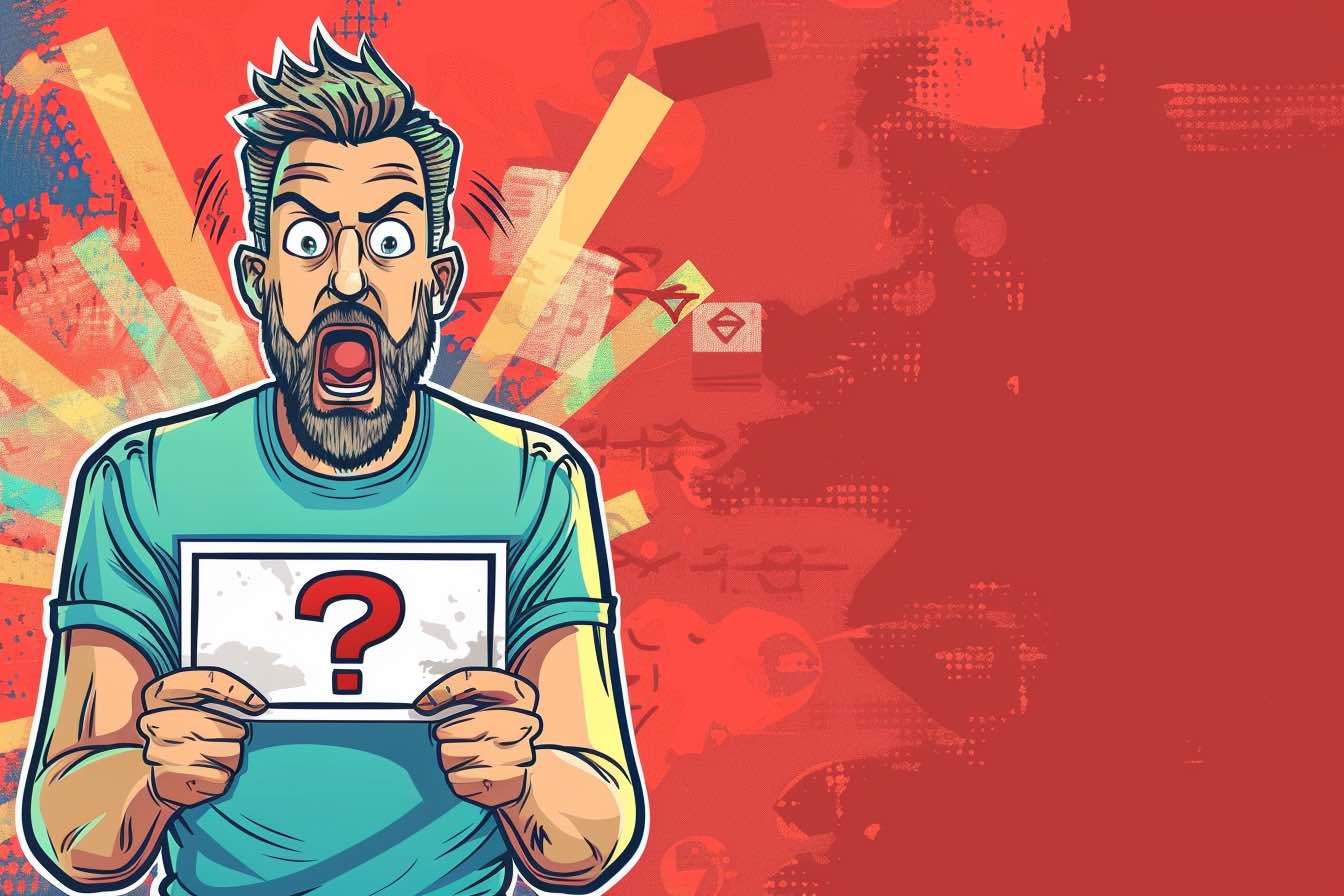How do you get a refund from Ticketmaster? For Jennifer Hu and her husband, the answer is: You can’t.
The couple spent $481 on tickets to a performance by pianist and composer Joe Hisaishi earlier this year, but organizers postponed the event.
Ticketmaster gave the couple 30 days to accept the new concert date or receive a full refund. But Hu couldn’t make up her mind and soon found herself with two nonrefundable tickets for a new date.
Could Ticketmaster just keep her money? Not if I have anything to say about it.
I’ll show you how Hu got a refund from Ticketmaster — and how you can, too. I’ll also share a fascinating story about what Ticketmaster is trying to do to websites for publishing helpful information like this.
Why do they want a refund from Ticketmaster?
Hu and her husband, who live in San Diego, got married earlier this year. They’re big fans of Joe Hisaishi and planned their honeymoon around a January 27 concert in New York.
But a week before their honeymoon, they received disappointing news. Hisaishi had postponed the concert to August 17. Ticketmaster gave them 30 days to decide whether to accept the new show or request a refund.
“Because we still wanted to attend the concert, we did not request a refund at the time and were hoping to return to New York to see it,” she says. “The flights to New York are too expensive now for us to go back to see the show. I requested a refund from Ticketmaster. They refused.”
Ticketmaster’s rules for refunds on postponed events are a little wordy:
If your Notification indicates that your event has been rescheduled, postponed, or moved, you will either: (a) keep your ticket(s) and any additional add-ons or upgrades, which remain valid; or (b) if the Event Organizer has approved refunds (or the option to choose between a refund and a credit), as explained in your Notification, you may select a Credit or refund. This Credit or refund, if elected, is provided solely by the Event Organizer, and not by Ticketmaster.
In other words, it’s up to the organizer to offer a refund and to attach any terms, such as the 30-day decision window. Ticketmaster, as a ticket reseller, will enforce those rules — which is what it was doing with Hu.
What are Ticketmaster’s refund rules?
Generally, tickets purchased through Ticketmaster are nonrefundable. But there are certain exceptions.
- If organizers cancel your event, you are usually entitled to a refund. The event organizer may also offer a credit for future use.
- Event organizers may offer a new date or a credit if they postpone the show. You may have a limited amount of time to decide which to accept. If you don’t make a decision, your tickets will usually transfer to the new date — and they’ll be nonrefundable.
- There are no exceptions for hardship, extenuating circumstances or even death of the ticketholder, according to Ticketmaster’s refund rules. However, our advocacy team knows that they address these on a case-by-case basis.
How to ask for a refund from Ticketmaster
If the event organizer cancels your concert, Ticketmaster will process a refund for you. You don’t have to do anything.
Usually, Ticketmaster will email you to let you know of the cancellation. All you have to do is wait for the refund, which will show up in about two weeks via the original method of payment.
If the organizer postpones a concert, Ticketmaster notifies you of the new dates, usually by email. At that point, the dates on your tickets change to the new performance. Your online account will have a refund option if you can’t attend.
Here are the steps:
- Log in to your account at Ticketmaster.
- Click on ‘My Account’ (the person icon).
- On the left side of the screen, click ‘My Tickets.’
- Pick the event you want to be refunded and click ‘See Details.’
- Select ‘Refund.’
- Then choose the tickets you want to be refunded.
It takes about two weeks to get your refund.
Can you negotiate a refund with Ticketmaster?
Ticketmaster’s refund policy is strict, and there are no listed exceptions, as I’ve already mentioned. But Ticketmaster does grant exceptions. I know because I’ve handled many such requests:
- For example, during the pandemic, Linda Popky asked for a refund for her tickets to an Eagles concert, citing health concerns. Ticketmaster granted a refund after she emailed one of the executives.
- Barbara Davenport also had health problems related to COVID. So when her Lady Gaga concert got canceled, and Ticketmaster claimed she missed her 30-day window, I asked the company for help. It refunded her tickets.
- Even before the pandemic, Ticketmaster showed some flexibility, as it did with Michael Seldin after he got two bad seats at a Brad Paisley concert in Orlando. Seldin used the Ticketmaster executive contacts to negotiate a settlement.
There are a fair amount of complaints about Ticketmaster on our website.
Bottom line: Ticketmaster’s terms are sweeping and don’t allow for special circumstances when it comes to a refund. Yes, even if it fails to deliver the tickets as promised. You have to negotiate your refund. (Incidentally, Ticketmaster has some pretty outrageous hidden fees, which, of course, are also nonrefundable.)
More tips for getting a Ticketmaster refund
There are more ways you can get a refund when you purchase your event tickets through Ticketmaster.
Ask the organizer
Ticketmaster is a distributor and usually seeks approval from an event organizer before issuing a refund. If Ticketmaster refuses to refund your ticket, you can contact the organizer directly to ask for a one-time exception.
Invoke state law
Many U.S. states have strict rules about refunding event tickets. For example, in New Jersey, if a ticket broker guarantees delivery of tickets to a purchaser but fails to deliver the tickets, the ticket broker is required to provide a full refund.
Contact regulators
State regulators have been highly responsive to residents who can’t get a refund after a postponement or cancellation. During the pandemic, several states announced settlement agreements with brokers. In Pennsylvania, the state’s attorney general recently announced an agreement with RYADD, Inc., which sells tickets through the websites TicketsOnSale and OnlineCityTickets, for alleged violations of Pennsylvania’s consumer protection laws.
Authorities are playing hardball with ticket brokers. But ticket brokers are hitting back.
Ticketmaster to Elliott: Remove our executive contacts now!
Ticketmaster apparently doesn’t want its customers to negotiate any more refunds. I know because for the last month, I’ve been receiving emails from its law firm.
The lawyers first requested that we delete numbers and email addresses for Emily Wall, Ticketmaster’s global vice president for ethics and compliance and CEO Michael Rapino.
My research team and I reviewed the contacts and found that we had published a cell phone for one of the executives, which we removed. We don’t publish personal information such as home phone numbers and cell phone numbers on our site.
But that wasn’t enough.
The lawyers responded:
We appreciate your response and your willingness to remove “personal information, such as a home phone or personal cell phone number.”
However, we must reiterate our request that you also remove the remaining information in the “Executive Contacts” section from your website located at https://www.elliott.org/company-contacts/ticketmaster/, given that it also constitutes personal information.
As you may be aware, California privacy laws regulate the disclosure of personal information, including private and work-related email addresses and business contact information that can be used to identify an individual whether directly or indirectly.
Disclosure of the information provided for Melba Rodriquez, Emily Wall, and Michael Rapino violates these laws.
Also, although we appreciate the service you are offering for consumers through your website, we again note that these individuals have nothing to do with customer service and therefore would not “escalate a customer service issue when the normal channels don’t work,” as mentioned in your email.
The lawyers demanded that we remove all the names, numbers and email addresses, adding that “customers will not receive responses if they use the executive contact information.”
I will let you know how I answered them right after we get to the conclusion of Hu’s case.
Here’s what happened to Hu’s Ticketmaster refund case
I thought Hu had a shot at a full refund. She had planned her honeymoon around the concert. She had tried to make the new concert date. Ticketmaster’s refund rules didn’t address her problem, but I thought she deserved to make her case.
I shared the Ticketmaster executive contacts with her. That’s right, the names of Melba Rodriquez, Emily Wall, and Michael Rapino and their emails and phone numbers.
She contacted them.
“I was able to get an exception and they gave me a full refund,” she says. “Thank you so much for your help!”
Will we remove the Ticketmaster executive contacts?
So will we comply with Ticketmaster’s request to remove the names of all its executives?
Here’s how I answered the attorneys:
As you can imagine, we receive many takedown requests for information on the site, and we are well aware of our rights to publish this information.
However, I’ve been following your client’s recent problems in the media and would like to ensure all escalations go to the correct person.
If you give us the name and number of the correct person, I will consider updating the information.
Ticketmaster refused to send us the correct contact information — probably because we already listed the correct information — so the page remains online.
And here’s my view: We have the right to publish our executive contact database under the First Amendment. The emails, phone numbers and names do not violate any state laws.
Ticketmaster is dealing with the fallout from the Taylor Swift ticket fiasco and is trying to scrub the names of its executives from the internet.
In fact, the accurate company contacts published on this site do yield results, as cases like Hu’s prove.




